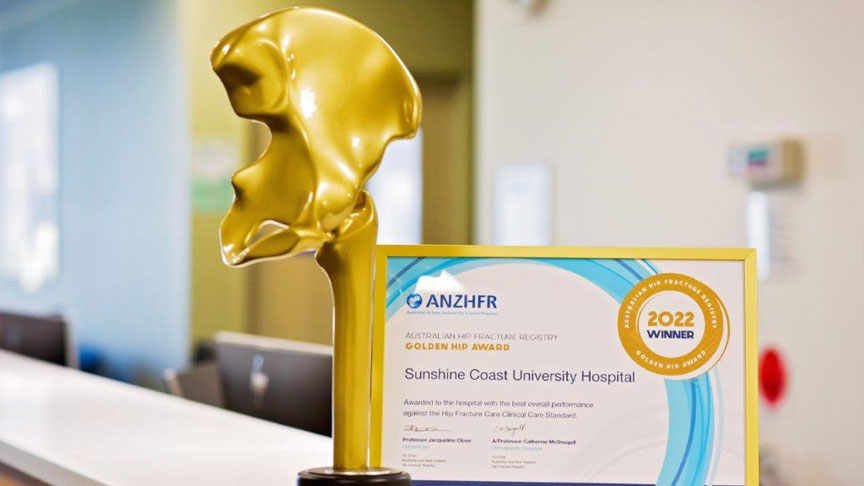
Sunshine Coast University Hospital (SCUH) has been recognised as among Australia's best performing hospitals for hip fracture care.
On 19 October, SCUH won this year’s Australian and New Zealand Hip Fracture Registry (ANZHFR) Golden Hip Award, a national award that rates a hospital’s performance against 16 indicators within the national Hip Fracture Care, Clinical Care Standard.
Dr Peter Gillies, Sunshine Coast Health Service Chief Executive said this award means a lot to many teams across the health service who care for hip fracture patients.
“The innovative model of care used involves a multidisciplinary team approach across multiple areas of the hospital, including geriatricians, the emergency department, anaesthetists, nurses, allied health and orthopaedic surgeons.”
“Our team works hard every day to provide the best care for our patients and our community and this award is testament to that.”
Dr Priscilla Martin, Clinical Director Surgical and Critical Care said the award is well deserved recognition of the care provided to patients with fractured hips.
“The model of care entails all confirmed hip fracture patients being admitted directly under the care of an Ortho-geriatrician, as opposed to a surgeon, who has primary responsibility of the patient’s coordination of care.
“We all work together to provide the best care possible for our patients, from their admission to the emergency department, through to their surgery, and then from their surgery to their rehabilitation back into the community.”
The risk of hip fractures increases with age because bones tend to weaken due to osteoporosis. Multiple medications, poor vision and balance problems also make older people more likely to fall — one of the most common causes of hip fracture.
A hip fracture almost always requires surgical repair or replacement, followed by physical therapy.